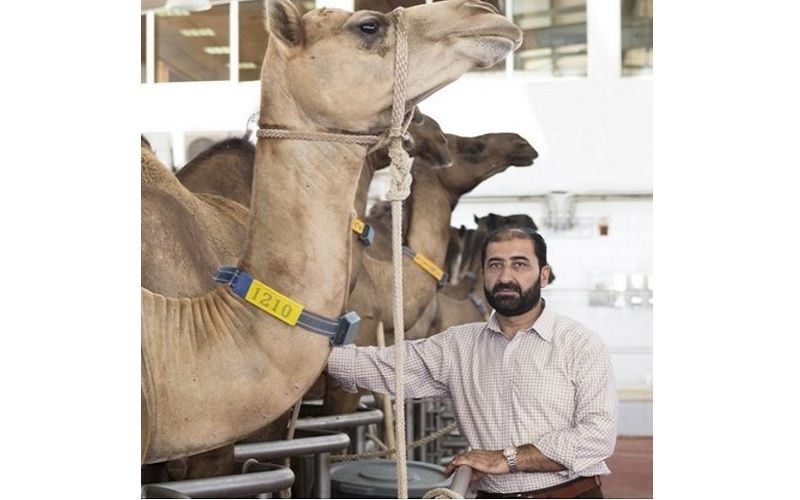The Guardian: Unrest in Europe's Farming Communities Fuels Far-Right Resonance
Amidst ongoing protests by farmers across Europe, the far-right is finding resonance within this discontent, capitalizing on opposition to environmental protection measures. Germany, the latest country to witness tractor blockades and protests, reflects a broader trend of agricultural resistance to policies aimed at curbing pollution from farms, writes The Guardian.

Growing Agricultural Unrest:
Farmers in Western Europe, grappling with the economic fallout from the energy crisis and the pandemic, express frustration at the financial burden of shouldering more of their pollution costs. This resentment is heightened by feelings of overregulation and undervaluation by urban populations.
Global Wave of Protests:
The Netherlands, Belgium, Ireland, Spain, and France have experienced farmer protests, ranging from nitrogen emission regulations to water usage restrictions. Recently, German farmers dumped manure on Berlin streets to voice their concerns. Despite concessions from governments, lobby groups persist in pushing for a complete withdrawal of proposed tax increases.
Environmental and Economic Challenges:
Environmental activists advocate for more sustainable use of agricultural subsidies, urging policies that prioritize ecological and social considerations. Scientists warn of the impact of climate change on farming, with over 80% of European habitats in poor condition. However, some governments prioritize addressing the far-right's attention garnered by farmers' protests over environmental concerns.
Far-Right Exploitation:
Far-right and populist parties are capitalizing on farmer discontent. In the Netherlands, the Farmer-Citizen Movement emerged as a rural populist party, while the German protests gained support from the far-right Alternative for Germany (AfD) and extremist groups. Moderate conservative groups in Europe show division on environmental measures.
Overlap with Conspiracy Theories:
The grassroots support for farmer protests intersects with conspiracy theories surrounding COVID-19, climate change, and migration. The Netherlands witnessed the rise of a new form of agrarian populism, which has spread across Europe and influenced discussions on global elites and radical changes in lifestyle.
Impact on Global Platforms:
Conspiracy theories from European farming communities have spread globally through platforms like YouTube and social media. Influential figures, like Elon Musk, express support for farmers, contributing to the narrative of resistance against perceived globalist agendas.
Far-Right Distancing and Symbolism:
While the German farmers' association distances itself from far-right influence, symbols and rhetoric associated with extremism have appeared at protests. Banners emphasizing the diversity of farming and denouncing extremism counteract attempts by fringe groups to align with the movement.
Cross-Contamination of Extremism:
Political scientists note a shift in ideologies, with far-right actors adopting a mix of ideological elements, reflecting a broader shift towards extremism. Nostalgia for the past and nationalist sentiments contribute to far-right ideologies seeping into agricultural protests.
As Europe grapples with balancing environmental priorities and addressing farmer grievances, the intersection of far-right influence, conspiracy theories, and agricultural unrest poses challenges for governments seeking to navigate these complex issues.
Farmers in Western Europe, grappling with the economic fallout from the energy crisis and the pandemic, express frustration at the financial burden of shouldering more of their pollution costs. This resentment is heightened by feelings of overregulation and undervaluation by urban populations.
Global Wave of Protests:
The Netherlands, Belgium, Ireland, Spain, and France have experienced farmer protests, ranging from nitrogen emission regulations to water usage restrictions. Recently, German farmers dumped manure on Berlin streets to voice their concerns. Despite concessions from governments, lobby groups persist in pushing for a complete withdrawal of proposed tax increases.
Environmental and Economic Challenges:
Environmental activists advocate for more sustainable use of agricultural subsidies, urging policies that prioritize ecological and social considerations. Scientists warn of the impact of climate change on farming, with over 80% of European habitats in poor condition. However, some governments prioritize addressing the far-right's attention garnered by farmers' protests over environmental concerns.
Far-Right Exploitation:
Far-right and populist parties are capitalizing on farmer discontent. In the Netherlands, the Farmer-Citizen Movement emerged as a rural populist party, while the German protests gained support from the far-right Alternative for Germany (AfD) and extremist groups. Moderate conservative groups in Europe show division on environmental measures.
Overlap with Conspiracy Theories:
The grassroots support for farmer protests intersects with conspiracy theories surrounding COVID-19, climate change, and migration. The Netherlands witnessed the rise of a new form of agrarian populism, which has spread across Europe and influenced discussions on global elites and radical changes in lifestyle.
Impact on Global Platforms:
Conspiracy theories from European farming communities have spread globally through platforms like YouTube and social media. Influential figures, like Elon Musk, express support for farmers, contributing to the narrative of resistance against perceived globalist agendas.
Far-Right Distancing and Symbolism:
While the German farmers' association distances itself from far-right influence, symbols and rhetoric associated with extremism have appeared at protests. Banners emphasizing the diversity of farming and denouncing extremism counteract attempts by fringe groups to align with the movement.
Cross-Contamination of Extremism:
Political scientists note a shift in ideologies, with far-right actors adopting a mix of ideological elements, reflecting a broader shift towards extremism. Nostalgia for the past and nationalist sentiments contribute to far-right ideologies seeping into agricultural protests.
As Europe grapples with balancing environmental priorities and addressing farmer grievances, the intersection of far-right influence, conspiracy theories, and agricultural unrest poses challenges for governments seeking to navigate these complex issues.
Key News of the Week









